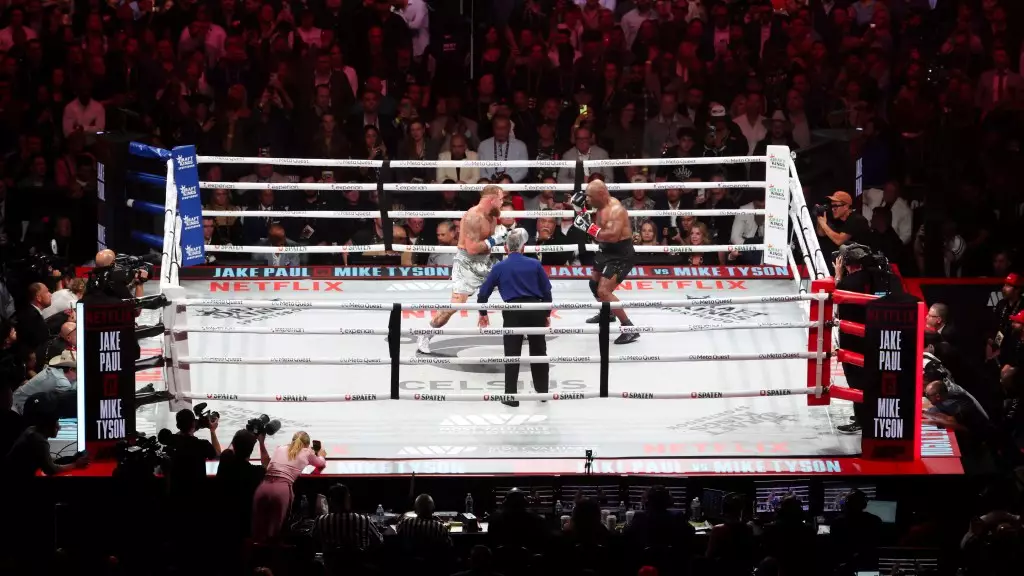The boxing match between social media sensation Jake Paul and former heavyweight champion Mike Tyson on November 15 at AT&T Stadium in Arlington, Texas, was highly anticipated. Promoted as a monumental event, ticket sales and viewership goals were set sky-high. However, the reality of ticket sales and attendance starkly contrasted with the extravagant promises made by the promoters. With under 60,000 tickets sold, this bout exemplified the chasm that can exist between hype and actual consumer engagement in the sporting arena.
Documents revealed that a total of 59,666 tickets were ultimately sold, alongside 6,437 complimentary tickets, bringing the total distribution to 66,103. This figure comes significantly short of Jake Paul’s ambitious claim that 90,000 spectators would fill the stadium, which has a regular seating capacity of 80,000. To achieve such a dizzying number, an additional 10,000 standing-room-only tickets would have needed to be sold. This stark underachievement raises questions about the viability of celebrity boxing matches as a sustainable financial model.
Despite disappointing ticket sales, the event did generate $18.1 million in revenue, which is commendable in its own right and more than most U.S. boxing events outside of Las Vegas. However, the number of tickets sold still serves as a critical metric that could dampen the spirits of both promoters and fans alike. The additional $3.6 million in revenue attributed to complimentary tickets showcases an interesting but concerning trend: how much value is derived from giveaways compared to actual sales.
Interestingly, while the live ticket sales fell flat, Netflix touted the fight as its most-streamed sporting event ever, attracting concurrent streams that peaked at 65 million. This dissonance raises important questions regarding the future of live sporting events. Are viewers increasingly opting for online consumption over physical attendance? Does the presence of a high-profile streaming partner skew traditional metrics like ticket sales? As this trend surfaces, it is critical for promoters to re-evaluate their strategies, leveraging both live events and digital streaming to maximize engagement.
In the aftermath of the Jake Paul vs. Mike Tyson fight, promoters and stakeholders must grapple with a range of implications. The shortfall in ticket sales despite high levels of streaming interest suggests that while the celebrity boxer model is lucrative online, it may not guarantee success in physical venues. Promoters like Most Valuable Promotions must adapt their strategies, investing in marketing that resonates equally with both local attendees and a global audience. This duality may well define the future of celebrity boxing, positioning it not just as a fight for glory but also as a spectacle for the digital age.

